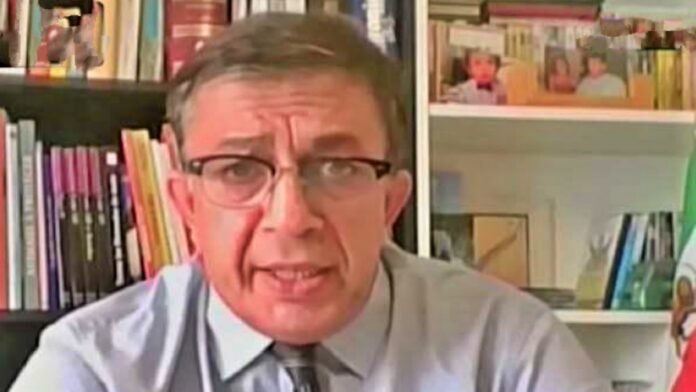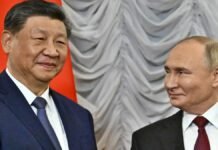
Key Points
- Mahmoud Moradkhani, nephew of Iran’s Supreme Leader, calls for the end of the Islamic Republic as the only path to peace.
- Moradkhani, exiled in France since 1986, says regime collapse is necessary “by any means” and hints at possible coup amid escalating Iran-Israel conflict.
- Internet blackout and internal unrest in Iran signal regime instability as war with Israel intensifies.
- US President Trump has approved military options against Iran, further raising tensions.
- Exiled opposition figures, including Reza Pahlavi, declare Khamenei’s regime is collapsing.
New Delhi: As the Israel-Iran war enters its second week, a dramatic call for regime change has emerged from within Iran’s ruling family. Mahmoud Moradkhani, the exiled nephew of Supreme Leader Ayatollah Ali Khamenei, has declared that the collapse of the Islamic Republic is the only path to real peace even if it means a coup or other drastic measures.
“Anything that makes this regime disappear is necessary,” Moradkhani said in an interview from his home in northern France. “Now that we are at this stage, it has to be done.”
Moradkhani, who fled Iran in 1986 due to his opposition to his uncle’s authoritarian rule, has been a persistent critic of the regime. He expressed deep regret over the ongoing military confrontation with Israel but insisted that the war is “inevitable under a regime unwilling to bend or reform.” He warned that without the end of the Islamic Republic, Iran faces a “useless defeat” and a dangerous future.
Signs of Regime Weakness and Internal Unrest
Moradkhani highlighted the growing weakness of the regime, noting that many Iranians are “happy” to see signs of its decline. He has lost contact with his network inside Iran due to a near-total internet blackout imposed by authorities a move widely seen as an attempt to suppress unrest and prevent the spread of information.
The Iranian government has responded to the crisis by deploying riot police in Tehran, arresting alleged “Mossad spies,” and passing new laws to harshly punish anyone suspected of cooperating with foreign governments. Israeli airstrikes have severely damaged Iran’s military and energy infrastructure, worsening the country’s economic crisis and fueling further public anger.
International Pressure Mounts
The crisis has drawn in global powers. US President Donald Trump has demanded Iran’s “unconditional surrender” and is considering military strikes on Iran’s nuclear facilities. While no final order has been given, Trump’s aides confirm that military options have been approved, raising the stakes of the conflict.
Trump threatened Supreme Leader Khamenei directly, saying the US knew his location but “would not kill him, yet,” and warned that American patience is “wearing thin.”
Opposition Voices Grow Louder
Moradkhani is not alone in calling for regime change. Reza Pahlavi, the exiled son of the late Shah of Iran, also declared that the Islamic Republic is “in the process of collapsing,” describing Khamenei as a “frightened rat” who has lost control.
“The end of the Islamic Republic is the end of its 46-year war against the Iranian nation,” Pahlavi stated, urging Iranians to seize the moment for change.
The Road Ahead
With both Israel and Iran escalating their military campaigns and the Iranian regime tightening its grip at home, the risk of internal upheaval is rising. Economic turmoil, infrastructure damage, and widespread unrest have left the regime vulnerable. As calls for regime collapse grow louder from both inside and outside Iran’s ruling family, the future of the Islamic Republic hangs in the balance.





















































